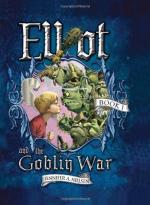This certainly had happened for a week or two, but the rates were soon broken, because they were making too high wages; and the men found, as usual, that their increased output had merely meant increased work for them, and increased profits for the owners.
Was there nothing to be done? Robert wondered, as he paced restlessly back and forth, his mind busy, as the mind of every man present, and anxious to make any sacrifice, to take any risk, if by so doing they might save those imprisoned in the mine. Even while his mind was working, he could not help listening to the talk of those around him. There were strange opinions expressed, and wild plans of rescue were suggested and discussed and disputed. Everyone condemned the coal company for what had happened, but over all there were the white-faced women and the silent children; the muffled sobs, the tears, and the agony of silent wet eyes that spoke more pain than all the tragedies that had ever been written.
Robert could not help listening to one man—a big, raw, loosely-built fellow, who stood in the midst of a group of women laying off his idea of a rescue.
“I’m rale glad to be out of it,” he said, “for Jean’s sake, an’ the bairns; but for a’ that I’d gang doon again an’ try an’ get them oot if there was ony chance o’ doin’ it.”
“Hoo is Jean?” one woman interposed to enquire about his wife, who had been ill a long time.
“Oh, she’s gettin’ on fine noo, an’ the doctor has a hopeful word o’ her,” he answered. “In fact, I was just feeding the birds the last time he was in, an’ asked him hoo she was doin’.”
This man, Dugald McIntosh, had one god—his canaries. He read all he could get to read about them, and studied the best conditions under which to rear them, sacrificed everything he could to breed better birds, and this was always a topic for him to discourse upon.
“I was just busy feedin’ them when he cam’ in, and after he had examined her, I asked him hoo she was gettin’ on.”
“Fine,” he said, “gi’e her plenty o’ sweet milk noo, and fresh eggs, an’ she’ll sune be on her feet again. Fresh eggs! mind you, an’ me canna get yin for my canaries! I thocht it was a guid yin!”
Robert turned away; but there was working in his mind an idea, and he ran round to the colliery office to the manager, who was nearly mad with grief and anxiety at what had happened.
“Come in, Sinclair,” he said simply. “Can you suggest anything to help us? Whatever is done, it can only be done quickly; for the moss is rising rapidly in the shaft, and even though some of the men are safe in the upper workings, it is only a question of a very short time till the moss will rise and suffocate them, or until the black damp does so. If you have any idea that can help, out with it and let us make a trial, for the inactivity is killing me.”
“I have been thinking, Mr. Anderson,” replied Robert, “that we might go down the old air-shaft over in the moss there, and run along the top level, which is not far from the surface, and try and blast it through on the heading into which the moss broke.”




